Cardinal Bernard Law Dies; Was Seen by Many as Enabler of Molesters
The disgraced former archbishop of Boston was 86. “I hope the gates of hell are swinging wide to allow him entrance,” declares a woman who says she was sexually abused as a child.VATICAN CITY — Cardinal Bernard Law, the disgraced former archbishop of Boston whose failure to stop child molesters in the priesthood triggered the worst crisis in American Catholicism, died Wednesday in Rome at age 86.
Law, who spent his final years in various Vatican posts, had been sick and was recently hospitalized.
Law was once one of the most important figures in the U.S. church, wielding considerable influence inside the Vatican. From 1984 until he resigned under pressure 18 years later, he was spiritual leader in Boston, the nation’s fourth-largest archdiocese, with 1.8 million Catholics.
But in 2002, The Boston Globe began a series of stories that revealed that Law and his predecessors had transferred child-molesting priests from parish to parish without alerting parents or police — a scandal later chronicled in the Oscar-winning film “Spotlight.”
Within months, Catholics around the country demanded to know whether their bishops had done the same.
In Boston, Law’s death was met with bitterness among some.
“I hope the gates of hell are swinging wide to allow him entrance,” said Alexa MacPherson, who says she was abused for six years as a child. “I won’t shed a tear for him. I might shed a tear for everyone who’s been a victim under him.”
Law’s successor as archbishop, Cardinal Sean O’Malley, said it was a “sad reality” that Law’s legacy will forever be tied to the abuse scandal, when the church “seriously failed” to care for its flock and protect children.
Pope Francis, who is being watched closely by the faithful over his handling of bishops who shield pedophiles, is set to preside over Law’s funeral rites at a Mass on Thursday at St. Peter’s Basilica, an honor accorded to all Rome-based cardinals.
The pope said nothing about Law’s passing during his weekly general audience Wednesday, and in a condolence letter he made no direct mention of the cardinal’s tenure in Boston.
“I raise prayers for the repose of his soul, that the Lord, God who is rich in mercy, may welcome him in His eternal peace, and I send my apostolic blessing to those who share in mourning the passing of the cardinal,” Francis wrote.
Since 1950, more than 6,500 of the nation’s priests, or about 6 percent, have been accused of molesting children, and the American church has paid over $3 billion in settlements, according to news reports and studies commissioned by the U.S. bishops.
As the leader of the archdiocese at the epicenter of the scandal, Law became a powerful symbol of the crisis in the church. His fall from grace was swift.
Law tried to manage the scandal at first by refusing to comment, then by apologizing and promising reform. But thousands more church records were released describing new cases of how Law and others expressed more concern for accused priests than for victims.
Amid a groundswell against him, including rare public rebukes from some of his own priests, Law asked to resign and the pope said yes.
“To all those who have suffered from my shortcomings and mistakes, I both apologize and from them beg forgiveness,” Law said in stepping down in 2002.
Still, Law retained some support in the Vatican. In 2004, he was appointed archpriest of the Basilica of St. Mary Major, one of four principal basilicas in Rome. When Pope John Paul died the next year, Law was among the bishops who presided at a Mass for the pontiff in St. Peter’s.
Law also continued for several years to serve on Vatican policy-making committees, including one that recommends bishops’ appointments to the pope.
Advocates for victims saw his continued influence in Rome as a slap in the face from an unrepentant church.
“Cardinal Law’s soft landing in Rome, after his Boston disgrace, reminds us that prelate privilege remains the rule in Catholicism,” said Terence McKiernan of BishopAccountability.org, a database of the global scandal in the church.
Mitchell Garabedian, a Boston lawyer who has represented dozens of people who say they were abused by priests, said Law’s death reopened wounds among many victims.
“Cardinal Law turned his back on innocent children and allowed them to be sexually abused and then received a promotion in Rome,” Garabedian said.
Fifteen years after the scandal broke, the issue of holding bishops accountable for failing to protect children remains a pressing matter for the church. Francis had promised to go after bishops but backed off a proposed Vatican tribunal to prosecute them and opted instead to use existing measures.
SNAP, the main U.S. advocacy group for those who were abused, urged Francis to keep the victims in mind during the funeral and complained that Law doesn’t deserve the pomp and circumstance.
“This celebratory focus on abuse enablers like Law must end,” said SNAP’s Joelle Casteix.
Law is expected to be buried in Rome, O’Malley said. The location hasn’t been disclosed, but Law would be entitled to burial at St. Mary Major.
Born Nov. 4, 1931, in Torreon, Mexico, Law was the only child of a U.S. Air Force colonel and a mother who was a Presbyterian convert to Catholicism. He graduated from Harvard University in 1953. He was ordained in 1961 and campaigned for civil rights in Mississippi, sometimes traveling in the trunks of cars for safety.
He was named bishop of the Diocese of Springfield-Cape Girardeau in Missouri, then archbishop of Boston, one of the most prominent and important posts in the U.S.
He broadly influenced Vatican appointments to American dioceses, served as a representative of the church to presidents and was favored by Pope John Paul II.
Law publicly challenged public officials over their support for abortion rights and joined other bishops in criticizing Geraldine Ferraro, the 1984 Democratic vice-presidential candidate and a Catholic, over the issue. He was a regular visitor to the White House under President George W. Bush.
Within the church, he was devoted to building Catholic-Jewish relations, including leading a delegation on a 1986 visit to the Auschwitz death camp in Poland. He worked closely with church leaders in Latin America, acting as an unofficial envoy of the pope to Fidel Castro’s Cuba.
The scandal in Boston broke when the Globe reported that Law and two predecessors as archbishop had transferred former priest John Geoghan to various assignments despite knowing he molested children.
More than 130 people eventually came forward to say Geoghan abused them. The archdiocese paid $10 million in settlements with 86 of his victims and their relatives as Law clung to his job.
___
Rachel Zoll reported from New York. Rodrique Ngowi in Holbrook, Massachusetts, contributed to this report.
Your support matters…Independent journalism is under threat and overshadowed by heavily funded mainstream media.
You can help level the playing field. Become a member.
Your tax-deductible contribution keeps us digging beneath the headlines to give you thought-provoking, investigative reporting and analysis that unearths what's really happening- without compromise.
Give today to support our courageous, independent journalists.
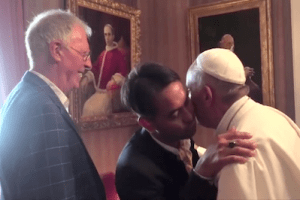
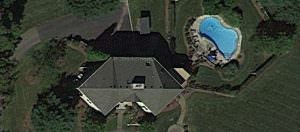
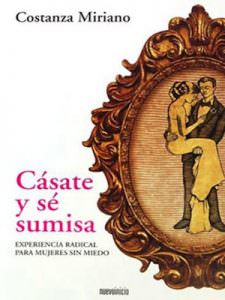
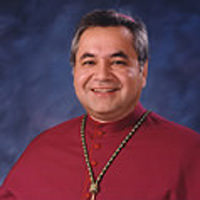
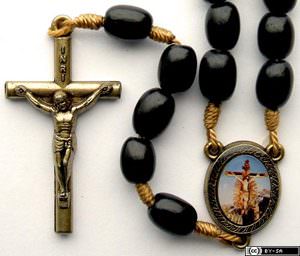
You need to be a supporter to comment.
There are currently no responses to this article.
Be the first to respond.